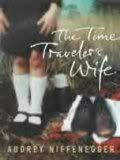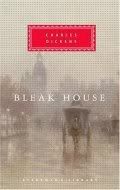Questions, Questions, Always Questions.
 I warn you now: I'm in a strange mood today. The second warning: this is going to be a long post, because I'm in the mood to ramble.
I warn you now: I'm in a strange mood today. The second warning: this is going to be a long post, because I'm in the mood to ramble.Part of it is induced by the onset of illness -shaking hands; freezing cold, even though I'm attired in a thick winter jumper and my cheeks, conversely, are burning up. I had to struggle to drain my only tall mug of cappuccino this morning. The blueberry cheesecake I ate sits in a hard undigested lump in the bottom of my stomach and I can't face cobbling together some sort of lunch (so in avoidance I've come on here instead). My throat feels like sandpaper and the breath rattles in my chest. I'm currently brewing up an echinacea to try and stave off these worrying symptoms. Last time I felt like this (back in February), I was afflicted with a bout of flu that had me in bed for the majority of the week. Even when I had relatively recovered, my hacking cough caused pedestrians to shoot me worried looks and quickly move to the other side of the road. When I sat in Katsouris (delicious Greek Deli- if any Mancunians read this who haven't visited, you're missing out!) a "magic ring" formed around me, where nobody dared to sit- even though it was the lunch rush hour and the place was crammed with workers. I seem to have an unfortunate prospensity for catching colds and flu. I just have to look at someone with a sniffle and I'm struck with a particularly virulent virus. As a result, my attendance record at school and college has always fell well short of even the "poor" mark.
The other cause of my strange mood is the fact that I've just finished reading "The Opposite of Fate" by Amy Tan. I'd read "The Bonesetter's Daughter" and loved it: it struck a sympathetic chord in me, so I thought I'd try this title seeing as it was on The Times special offer of buy a paper, get a book for £1. At first "The Opposite of Fate" seemed pretentious; contrived. Her life seemed depressing, a harsh unveiling of my previous thought of "oh, writing a book is easy. Being a novelist? Piece of cake." However, then certain phrases and sentences began to jump out at me. That's true- the ending paragraph or line really does change your overall impression of the novel as a whole. Her analysis of why she chooses to read particular books and stories (for their narrative qualities) caused me to think how do I choose the titles I read? Her endless questioning of literature, of how writers (whether minority or mainstream) are bracketed; pigeonholed; expected to conform to an ideal made me think. When Tan spoke of how, when writing an assignment on Hemingway she was berated for giving her own ideas and opinions, but praised when she rewrote the piece, giving the standard responses, that struck a chord in me. That's true- all those times we were explicitly told in English Literature classes not to write in examinations an original response: that the examiner was marking at speed and you would be more likely to score higher marks by writing a prescriptive essay. All those times I got essays back with marks deducted for 'original insight' and with a sea of red comments- "I don't agree with this"- scrawled in the margins. Isn't literature all about individual interpretation? If there's a lecturer at Durham who marks me down because I write things that don't agree with their ideas what do I sacrifice? My marks, by staying true to myself, or my originality; my ability to come to my own conclusions? Do I have the strength to stick to my own convictions when they're challenged?
My head hurts now. But still, that's good- isn't the mark of a truly good book one that alters your perception; that makes you think? The "Cherry" [Mary Karr] that I recommended earlier was a favourite because of the beauty and weight of its language. "The Opposite of Fate" is a recommendation in a different way- in that it signifies parts of my own mindset and that Tan asks so many of the same questions that buzz around in my own brain, unable to find release.
You know, the other day, someone criticised me; criticised this as being "intimidating". That evening, I wondered whether it is- whether the fact that I leapfrog around from topic to topic is off-putting. I mulled it over and gradually the sting of criticism (and initial "how they dare they-!") faded to do you really care? Simultaneously, I wondered who I write this for. The original idea was that I set this Blog up for family and friends to read about my exploits at univerisity. To save me sending out email after email updating countless people about the same old events. But really, even though I want them to see what I'm up to too, I fundamentally write for myself. I like the catharcism of sending my feelings out into "the cosmic void" (line stolen from "You've Got Mail" haha), whether people read and judge or not. It gives me a place to stick my musings down. I came to the conclusion that I could never write on solely one topic and by flitting from one subject to another, I am giving a better insight into my mind- I never run on one thought. I could never just limit myself to one subject (which is why I did 5 A Levels and am doing English, French and History at degree level instead of the -sensible- one straight subject that most students normally read). This is, after all, Pieces of my World.
I want to think; I want to learn; I want to know; I want to live. I want experiences; I want to get out there and see the world; open my mind up to as many opportunities as possible, so that I can make an educated evaluation of what it is that I really want. Yet at the same time, I hesitate; teeter on the brink. Whilst wanting to explore, an inner part of me holds me back. As Armitage so aptly coined, I am faced with my "wide blue yonder", but can only wonder whether I will "fall or fly".






2 Comments:
That's why I despise examinations. They don't measure a person's ability of intellect and their own talent - which they should - they measure a person's ability to remember and recall information. And unfortunately I have a terrible memory & a terrible concentration spam which means I can't digest information well (therefore why I did terribly terrible in my psychology exams this year, heheh..) Alas, that is the way of the system, and I need to improve my concentration span verrryy soon, otherwise I have a strange feeling I'm going to find university very difficult!
So true! I'm hoping that university will be a more accurate representation of academic ability-as opposed to the 'jump hoop' exercise that is the A Level system. The system isn't helped by the fact that every year newspapers scoff at results by asking 'Are A Levels are getting easier?' Although, saying that, the controversy over the strikes and effects on marking at universities(http://education.guardian.co.uk/specialreports/lecturerspay/story/0,,1778500,00.html) this year has been a bit worrying (imagine if you're in your final year and that happens!)
Post a Comment
<< Home